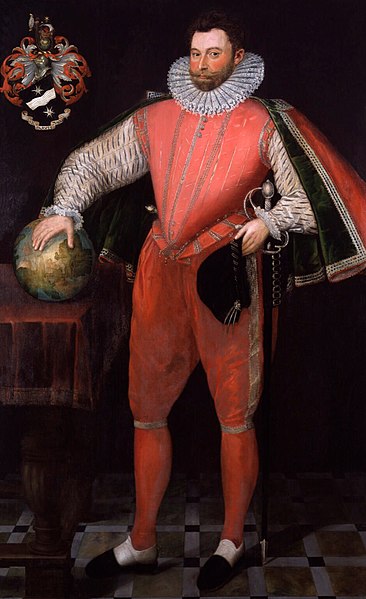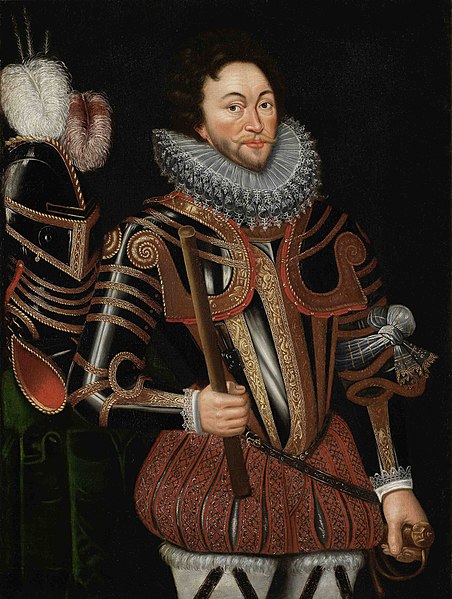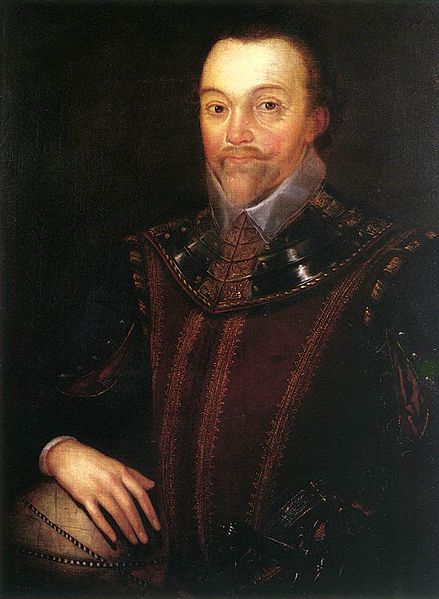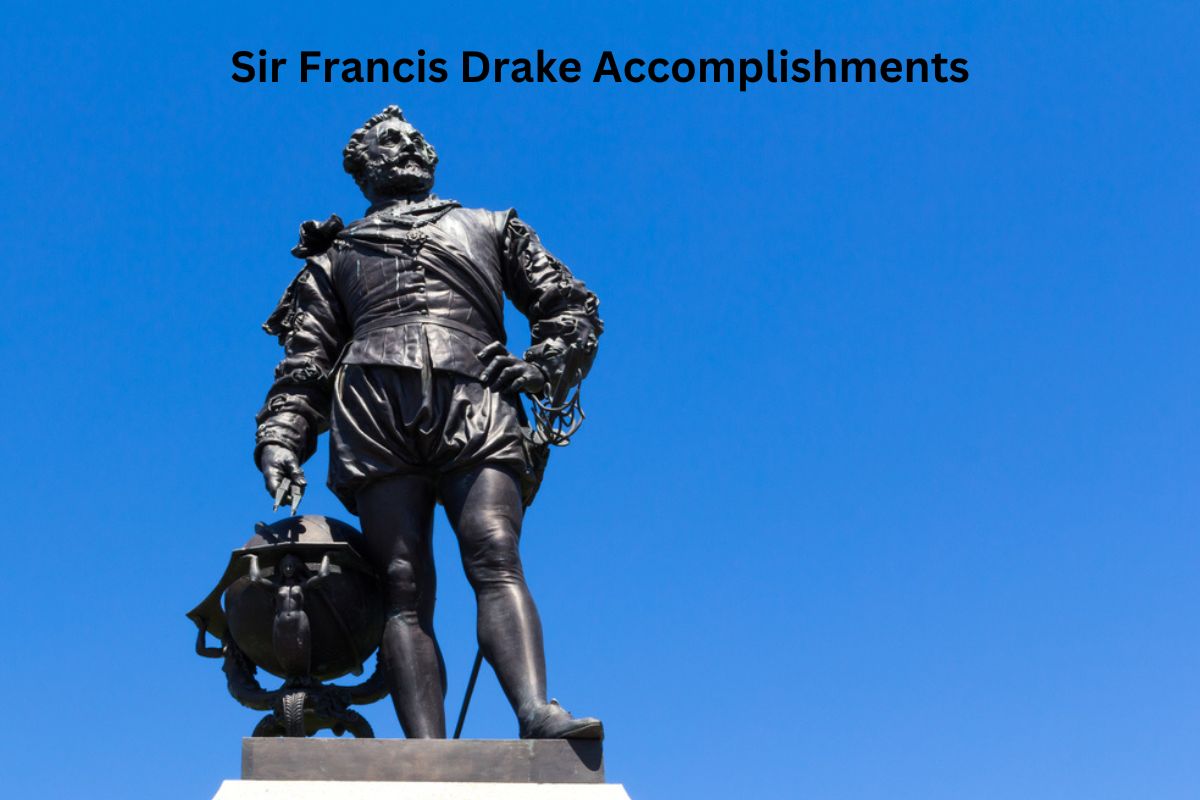Sir Francis Drake (c. 1540 – 1596) was an English explorer, privateer, naval officer, and national hero during the Elizabethan era.
He is renowned for his daring circumnavigation of the Earth from 1577 to 1580, making him the first Englishman to achieve this feat.
Drake was a skilled privateer, conducting raids on Spanish colonies and ships in the Americas, including the successful capture of treasure from Nombre de Dios in Panama.
He played a pivotal role in the defeat of the Spanish Armada in 1588, which protected England from invasion.
Drake was knighted by Queen Elizabeth I in 1581, and his legacy as a mariner, adventurer, and defender of England’s interests in the Age of Exploration endures in history.
Accomplishments of Sir Francis Drake
1. First Englishman to circumnavigate the Earth
Sir Francis Drake’s most famous achievement was his successful circumnavigation of the Earth. In 1577, he embarked on this epic journey aboard the ship Golden Hind.
Over the course of nearly three years, Drake and his crew sailed through treacherous waters, including the Strait of Magellan at the southern tip of South America, and ventured into uncharted territories.
Also Read: Facts About Sir Francis Drake
This accomplishment not only demonstrated Drake’s maritime skill but also established England’s presence in the Pacific Ocean and its potential for future exploration and trade in the region.

2. Defeated the Spanish Armada in 1588
One of Sir Francis Drake’s most significant military achievements was his role in the defeat of the Spanish Armada in 1588. As a vice admiral in the English fleet, Drake played a vital strategic role in coordinating attacks on the Spanish fleet.
His tactics, including the use of fire ships, disrupted the Armada’s formation and caused significant damage to the Spanish ships.
Also Read: Timeline of Sir Francis Drake
This victory was a pivotal moment in English history, as it prevented the invasion of England by the powerful Spanish forces and marked the decline of Spanish naval supremacy.
3. Successful privateering raids against Spanish colonies and ships
Throughout his career, Sir Francis Drake was a successful privateer, sanctioned by the English Crown to raid and plunder Spanish colonies and ships in the Americas.
His privateering expeditions were marked by daring attacks on Spanish ports and treasure-laden galleons. One of his most famous exploits was the raid on Nombre de Dios in present-day Panama in 1572, where he captured a significant amount of silver and gold.
Drake’s privateering activities not only brought him immense wealth but also contributed to the weakening of Spanish maritime dominance in the New World, making him a hero in England and a thorn in Spain’s side.
4. Discovered the Drake Passage
During his circumnavigation voyage from 1577 to 1580, Sir Francis Drake is credited with discovering the Drake Passage. This narrow body of water separates South America’s southern tip from Antarctica and connects the Atlantic Ocean with the Pacific Ocean.
Drake’s navigation through this challenging passage marked a significant geographical discovery, as it provided an alternative route for ships traveling between the two oceans.
While the passage was known to be treacherous, it later became an important route for scientific exploration and maritime commerce.
5. Sacked Nombre de Dios in Panama for treasure
In 1572, during one of his privateering expeditions, Sir Francis Drake led a daring raid on the Spanish town of Nombre de Dios, located on the Caribbean coast of present-day Panama.
This action was part of Drake’s efforts to intercept Spanish treasure shipments from the Americas to Spain. During the raid, Drake and his crew captured significant amounts of silver and gold, temporarily disrupting the Spanish treasure trade and greatly enriching themselves.
This successful raid further solidified Drake’s reputation as a skilled and audacious privateer.

6. Founded “New Albion” on the west coast of North America
While circumnavigating the globe, Drake made a significant claim on the west coast of North America, which he named “New Albion.” The exact location of New Albion is uncertain, but it is believed to be in present-day California, Oregon, or British Columbia.
Drake’s landing marked one of the earliest recorded instances of an Englishman setting foot on the Pacific coast of North America.
Although Drake didn’t establish a permanent settlement, this event laid the foundation for future English exploration and territorial claims in North America, contributing to England’s presence on the continent.
7. Engaged in diplomatic missions for Queen Elizabeth I
In addition to his military and exploratory achievements, Sir Francis Drake also served as a diplomat for Queen Elizabeth I. He undertook several diplomatic missions aimed at forging alliances and strengthening England’s international relations.
These diplomatic efforts were often intertwined with his voyages and privateering activities. For example, during his circumnavigation, Drake engaged in diplomacy with various indigenous peoples he encountered, seeking to establish friendly relations and trade agreements.
8. Knighted by Queen Elizabeth I
In recognition of his accomplishments and services to the Crown, Queen Elizabeth I personally knighted Sir Francis Drake aboard his ship, the Golden Hind, in 1581.
This knighthood elevated Drake’s status and solidified his position as a respected and influential figure in English society. He became known as Sir Francis Drake, and this honor was a testament to his contributions to England’s naval and maritime endeavors.

9. Executed a strategic raid on Cadiz, Spain
In 1587, Sir Francis Drake executed a daring and highly successful raid on the Spanish port of Cadiz, a crucial naval base and a center for Spanish maritime activity.
Drake’s raid, known as the “Singeing of the King of Spain’s Beard,” involved the destruction of numerous ships, supplies, and munitions in Cadiz harbor.
This strategic strike significantly weakened the Spanish fleet and disrupted their preparations for the anticipated invasion of England, which would culminate in the Spanish Armada’s defeat the following year.
10. Left a lasting legacy in exploration and maritime history
Sir Francis Drake left a lasting legacy in the fields of exploration and maritime history. His circumnavigation of the Earth and his contributions to the defeat of the Spanish Armada are celebrated as pivotal moments in English history.
The Drake Passage and Drake Bay in Costa Rica are named in his honor, serving as geographical reminders of his exploration.
Additionally, his reputation as a skilled navigator, privateer, and defender of England against Spanish threats endures in the annals of history, making him one of the most iconic figures of the Elizabethan era.
Drake’s exploits continue to be studied and admired for their impact on the course of world events during his time.
